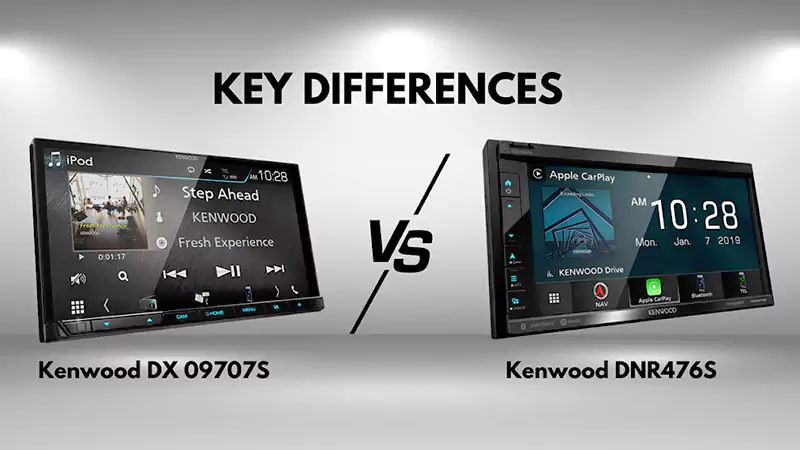Is Your Car Breaking Down? Who’s to Blame: You or the Manufacturer?
Have you ever wondered why cars sometimes break down? It’s frustrating, isn’t it? In this piece, we will learn the cause behind its failure and try to discover if it’s your fault or a flaw in the manufacturing process. Buckle up, and let’s embark on a journey to find the truth.
Understanding Car Breakdowns
Before we dive into the blame game, let’s understand what a car breakdown means. It occurs when your vehicle stops working unexpectedly, leaving you stranded on the side of the road. The bunch of reasons behind it are machine problems, electrical issues, or a flat tire.
Car engines are like the heart of a vehicle. They require proper care and observation to keep them running smoothly. Over time, neglecting uniform nurturing tasks like oil changes, coolant top-ups, and filter replacements can result in machine malfunctions, resulting in failures.
Do You Know– Warming the engine before driving doesn’t help in its engine’s smoothness rather it damages the fuel cylinder, leads to oil contamination, and disintegrates the cylinder walls.
Your Responsibility: Regular Maintenance
Maintaining a vehicle is like taking care of your health. Just as you need to eat well and exercise to stay healthy, your vehicle also needs well-organized support to be in good shape. It’s your responsibility to take care of its constant servicing, oil changes, and inspections. Avoiding these tasks can lead to breakdowns.
Imagine if you never brushed your teeth or went to the dentist. Your teeth would likely ache, right? Similarly, if you ignore routine maintenance, complications can accumulate and cause your car’s malfunction. Regular nurturing helps identify budding issues early on, allowing mechanics to get secured before they become major problems. There are several types of car maintenance that should be done by you, yourself.
Driving Habits and Breakdowns
How we drive our vehicles can also contribute to breakdowns. Sudden braking and speeding, puts additional stress on the engine and other components. It’s important to drive responsibly, follow traffic rules, and avoid excessive strains.
Think of your vehicle as a delicate ballet dancer. Sudden movements and excessive force can lead to strained muscles and injuries. Likewise, aggressive driving strains its parts, brakes, and suspension, increasing the risk of your machine’s malfunctioning. By adopting a calm and smooth steering style, you reduce the chances of damaging vital components.
Helpful Tip: Always avoid turning your steering wheel to the extreme right and left for more than a second because it severely damages the power-steering pump.
Manufacturer’s Role: Quality Control
Car manufacturers play a vital role in ensuring quality and reliability. They invest in rigorous testing processes to identify and rectify any possible manufacturing flaws. However, despite their efforts, occasional defects may slip through the cracks, leading to automobile failures.
They employ highly skilled engineers and technicians who meticulously design and build, same way betting site partner with competent software providers to design their games. They follow strict quality control protocols to minimize defects, but it’s impossible to achieve absolute perfection. Occasionally, a faulty part or manufacturing error might find its way into a dysfunction.
Recalls and Defects
Manufacturers are committed to customer safety. In case of a widespread issue or defect, they initiate recalls to fix the problem. Recalls help address likely faults that could cause failures or pose safety risks. If you receive a recall notice, it’s crucial to take your automobile to the dealership for necessary repairs.
Recalls are like medical check-ups. Just as doctors identify and treat health issues, manufacturers identify and resolve defects through recalls. It’s essential to respond promptly to recall notices to ensure future reliability and safety.
The Importance of Vehicle Diagnostics
Modern vehicles are equipped with advanced diagnostic systems that monitor various components and systems. These diagnostics systems continuously analyze data from sensors and provide valuable insights. When an issue is detected, the system generates warning lights or error codes to alert the driver.
Understanding these warning signs is crucial. If you notice any unusual indicators on your automobile dashboard, it’s important to address them promptly. Ignoring warning lights can lead to more severe problems and future disintegration. Taking it to a qualified mechanic who can diagnose and resolve the issue can prevent further damage and ensure your safety on the road.
Even checking and interpreting the diagnostic codes can help identify potential problems early on, allowing for timely repairs and helping avoid any future car disintegration. Embracing the benefits of vehicle diagnostics empowers owners to take proactive measures in maintaining and reducing the likelihood of any collapse.
Life-Saving Fact: Always read the owner’s manual as it guides towards the recommended services and contains high-quality advice too.
Environmental Factors and Car Breakdowns
While we often meditate on maintenance and manufacturing, we often forget the impact of environmental factors on car disintegration. Extreme weather conditions, such as scorching heat, freezing cold, heavy rainfall, or dusty environments, can impair its parts easily.
In hot climates, excessive heat can cause machine overheating or tire blowouts. Cold weather, on the other hand, can lead to battery failures and thickening of fluids, making it difficult to set off smoothly. Heavy rain can result in slippery roads and poor visibility, increasing the risk of mishaps. Dusty environments can clog air filters and affect the overall performance too.
To mitigate the effects of these environmental factors, owners should adapt their upkeep routines accordingly. This includes checking and maintaining proper fluid levels, inspecting tires for wear and tear, cleaning air filters evenly, and ensuring proper ventilation to prevent overheating. By considering these factors, owners can reduce the chances of any failures caused by environmental conditions.
Collaborative Responsibility
Ultimately, the responsibility for a well-maintained vehicle lies both with the owner and the manufacturer.
By taking care of it through well-organized caring and responsible driving, you can lower the probability of future malfunctioning. Meanwhile, builders should continue to improve their quality control processes and address any reported issues promptly.
Think of ownership as a partnership between you and the manufacturer. Both parties need to fulfill their roles for a successful and trouble-free journey. By practicing good maintenance habits you contribute to a safe present and future. Simultaneously, producers must strive for continuous improvement to deliver reliable vehicles to their customers.
Conclusion
Car failures can be caused by a combination of factors. While systematic maintenance and being responsible throughout can prevent occasional manufacturing flaws can also contribute to these incidents. By understanding the shared responsibility between owners and constructors, we can work towards minimizing failures and ensuring safer journeys for everyone.









